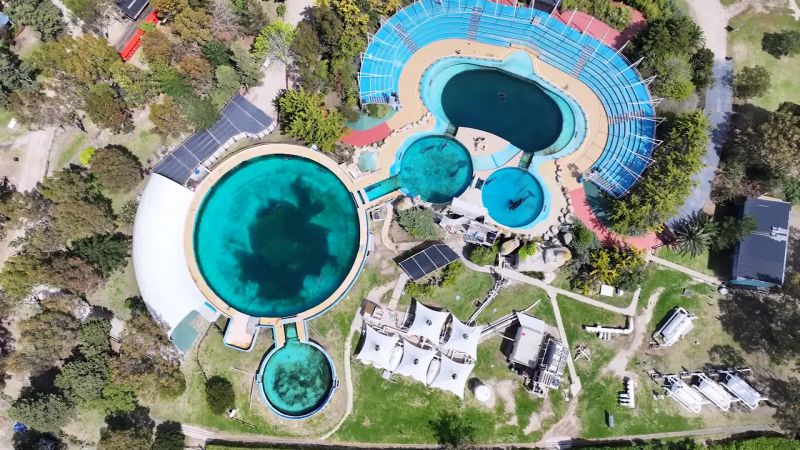
Liberate Kshamenk: Join the Movement to Free the Final Captive Orca in Latin America
The Issue at Hand
Kshamenk, the last captive orca in Latin America, has been living in captivity for decades at the Mundo Marino theme park in Argentina. The campaign to free Kshamenk has gained momentum in recent years, with animal rights activists and environmentalists advocating for his release into a sanctuary where he can live a more natural life.
Kshamenk’s Story
Kshamenk was captured off the coast of Argentina in 1992 when he was just a young orca. Since then, he has been living in a small tank at Mundo Marino, performing in shows for visitors. Despite efforts to improve his living conditions and provide enrichment, Kshamenk’s existence in captivity raises concerns about his well-being and the impact of captivity on his physical and psychological health.
Environmental and Ethical Concerns
The campaign to free Kshamenk is driven by a growing awareness of the ethical and environmental implications of keeping orcas and other marine mammals in captivity. Studies have shown that orcas in captivity often display abnormal behaviors, suffer from stress-related illnesses, and have shorter lifespans compared to their wild counterparts. By advocating for Kshamenk’s release, activists are calling attention to the broader issue of marine mammal captivity and the need to prioritize animal welfare over entertainment and profit.
Legal and Practical Challenges
While the campaign to free Kshamenk has garnered support from around the world, there are legal and practical challenges to consider. Mundo Marino has stated that releasing Kshamenk into the wild is not a viable option due to his long captivity and lack of necessary survival skills. Additionally, there are concerns about finding a suitable sanctuary for Kshamenk to live out the remainder of his life in a more natural environment.
The Future of Kshamenk
As the campaign to free Kshamenk continues to gain momentum, it is clear that the future of this captive orca is a complex and multifaceted issue. While there are no easy solutions, the efforts to advocate for his release highlight a broader conversation about the ethics of keeping marine mammals in captivity and the responsibility of humans to protect and respect the natural world.
In conclusion, the campaign to free Kshamenk represents a crucial moment in the ongoing fight for animal rights and environmental conservation. By raising awareness about the plight of this last captive orca in Latin America, activists are working towards a future where marine mammals can live free from the confines of captivity and thrive in their natural habitats.
